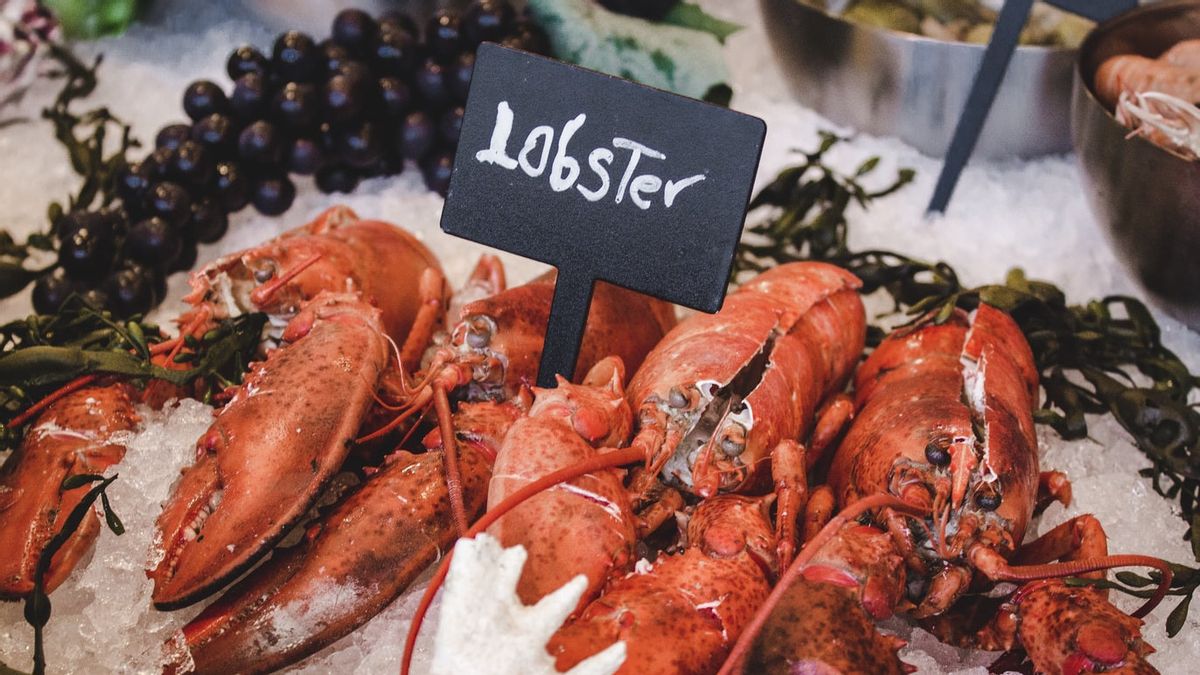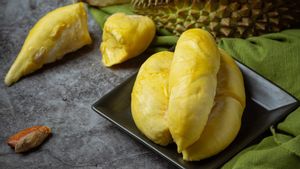JAKARTA - The Ministry of Finance and the Ministry of Maritime Affairs and Fisheries (KKP) are still working on the Minister of Finance's Regulation regarding the export of lobster seeds and the mechanism for collecting non-tax state revenue (PNBP). However, when the final rules had not been issued, there were two companies that exported 14 coles of clear lobster (puerulus) seeds on Friday, June 12.
Exports are carried out before standard regulations. Due to the need to quickly export, it was reported, the KKP itself proposed to apply the Special PNBP withdrawal, pending a permanent regulation.
"It seems that this (special PNBP) has also been proposed by the KKP, and again we are coordinating together," said Director General of Budget at the Ministry of Finance Askolani in Jakarta, Monday, June 15.
When asked further, what PNBP post will be included in, Askolani could not explain in more detail considering the revision of the PPNNBP KKP is currently still being discussed.
"It is being reviewed again," he said.
Director of PNBP Kemenkeu Wawan Sunarjo when asked for an explanation said, to his knowledge, no special PNBP mechanism for shrimp was regulated. "There are ship permits and capture permits. Check PP PNBP KKP. If the export problem is in BC (Customs)," he said.
Deni Surjantoro, Head of Communications and Publication Sub-Directorate General of Customs and Excise Deni Surjantoro, confirmed that on Friday, June 12, there were two companies, namely PT ASSR and PT TAM, which exported lobster seeds to Vietnam. He detailed, PT ASR sent live lobster fry of approximately 7 coli or around 37,500 tails. Meanwhile, PT TAM also sent live lobster fry of approximately 7 coli with 60 thousand live seeds.
Deni explained that the consignment entered the DJBC system, Friday, June 12 at around 12.30. "Because entering into the system means the requirements already exist in the system, namely fish quarantine certificate including PNBP receipts," he said.
According to Deni, his party has reconfirmed to the Fish Quarantine Agency, Quality Control and Safety of Fisheries Products (BKIPM) of the Ministry of Maritime Affairs and Fisheries at Soekarno Hatta airport, before goods are allowed to be exported.
"According to them it is correct and has met the requirements. In essence, from BC, as long as the requirements are complete, we will release it. Then regarding the Ministerial Decree No. 12, it was promulgated on May 5, 2020. In the Ministerial Regulation, it was stated that the previous KPP Ministerial Regulation No. 56 (2016) was revoked and did not apply. After reconfirming we approved the export, "he said.
On a different occasion, a source at DJBC had mentioned that the lobster seeds that were to be exported had been sealed by DJBC Soekarno-Hatta. The reason is, at that time, exporters did not meet the requirements for export duties and PNBP, quotas, and sizes according to the Minister of Marine Affairs and Fisheries Regulation Number 12 of 2020.
For your information, before the export is carried out, the exporting company should first pay off the PNBP per seed, which is IDR 5,000 per head. However, the fact is, exports can still be done by charter fleet (VN 5630) on June 12 at 14.30 from Terminal 3 Soekarno-Hatta International Airport WIB with the aim of Chi Minh City.
Rated CarelessRegarding this, the fisheries sector observer who is also the Executive Director of the Center for Maritime Studies for Humanity, Abdul Halim, thinks that currently the Minister of Marine Affairs and Fisheries is careless. This is because opening the export tap for catch lobster seeds is tantamount to ignoring the over exploited status of lobsters in 11 Indonesian fishery areas.
On the other hand, lobster cultivation, especially in domestic cultivation and rearing, is being actively carried out by the community in many lobster cultivation centers. Starting from Lombok, Sumatra, West Java to Aceh.
"In the midst of the growing domestic cultivation business, it is being ignored," he said.
Then, continued Halim, Permen 12/2020 is not based on the results of existing studies. He referred to the Fisheries Law which states, every fishery management activity for this type of lobster, must be preceded by a study result.
Until now, he added, the results of the study from the national commission for fish resources were last carried out in 2017. This means that the study was conducted by the previous Minister of KP, who actually banned the export of lobster seeds.
"The Minister of Marine Affairs is currently allowing the export of lobster seeds but it has no basis. How is this, the status of the study is red and yellow, how come it can be exported?" he said.
Furthermore, he also questioned the issuance of permits to more than 18 lobster seed exporters that were issued without any implementing regulations from Permen 12/2020.
"That (candy 12/2020) has no implementing regulations. After there are new technical guidelines, tests can be carried out, including seeing the track record of whether this exporting company has ever carried out cultivation," he said.
He emphasized that the provision or export activity which has been running is a blow to law enforcers who are so easily 'straddled' by short-term economic interests and ignoring the rules of the prevailing laws and regulations.
However, KKP Coordinating Minister for Advisory, Rokhmin Dahuri, is in the opinion that the lobster seed export policy is the right policy from an economic and ecological perspective. He said, when the KKP was led by Susi Pudjiastuti, all fishing for lobster seeds was prohibited, both for self-cultivation, let alone for export.
In fact, the survival rate (the ability to live lobster seeds to maturity) lobster cultivation in Indonesia alone is only 30 percent. That is far compared to Vietnam's survival rate which reached 70-80 percent. In the wild, lobsters that are able to live to adulthood are only 0.01 percent of the total number of seeds.
"So this limited export is correct. Moreover, many people are affected by COVID-19. If seeds are purchased for around Rp. 10,000 per head, there will be a turnover of around Rp. 3.6 trillion, in NTB, NTT, southern Java, Nias and others," he said. .
The Rp3.6 trillion assumption arises from the average number of fry that can be exported, namely one million fish per day, with an average price of around US $ 3 per head.
The English, Chinese, Japanese, Arabic, and French versions are automatically generated by the AI. So there may still be inaccuracies in translating, please always see Indonesian as our main language. (system supported by DigitalSiber.id)








